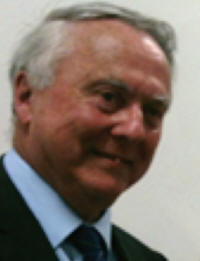Catholic Medical Quarterly Volume 71(2) May 2021
Correspondence
Do Not attempt Resuscitation decisions in those with Learning Disabilities
Dr Tony Cole
 A
deeply worrying practices during the Covid-19 pandemic has been the
imposition of non- resuscitation orders on patients with learning
disabilities. This usually takes the form of a "Do not attempt
cardiorespiratory resuscitation (DNACPR) order". It has already been
criticised by the Quality Care Commission and by interest groups for the
disabled, and drew a strong statement from the Catholic Bishops Conference
of England and Wales.
A
deeply worrying practices during the Covid-19 pandemic has been the
imposition of non- resuscitation orders on patients with learning
disabilities. This usually takes the form of a "Do not attempt
cardiorespiratory resuscitation (DNACPR) order". It has already been
criticised by the Quality Care Commission and by interest groups for the
disabled, and drew a strong statement from the Catholic Bishops Conference
of England and Wales.
Bishop Richard Moth is reported as saying
“In a time when we are being given so much hope by the efficient rollout of the vaccination programme it is shocking to hear that people with learning disabilities are being made the subject of such discrimination". [1 ]
If a person lacks mental capacity, such decisions should be made by a parent or a guardian subject, if challenged, to an order of The Court of Protection. There is no formal procedure if the patient is an adult but consultation with the family would constitute good practice. Thus a close family member would expect to be consulted in the case of an adult with profound learning disabilities.
Many people who have moderate learning disabilities will have sufficient mental capacity to make such decisions. For example a Downs person who may already have sufficient mental capacity in law to marry. Under the Mental Capacity Act 2005 the legal test is the ability to understand, reason and communicate the decision. Most of the children who passed through the Lejeune Clinic for Downs Children during my 20 years as medical director would, in my view, achieve this level of capacity as adults.
The whole question of who should be considered as having learning disabilities is difficult and when capacity may be lost later in life as in say dementia, it is determined by formal assessment. Furthermore, mental capacity can vary according to inter-current conditions such infections or dehydration.
Blanket decisions are not appropriate and have been condemned by the Quality Care Commission and the Depart of Health.
One is reminded of the statements of Pope Francis “If we deprive the weakest among us of the right to life, how can we effectively guarantee respect for every other right?” [2] and , "No one is useless and no one expendable". [3]
References
- The Tablet, 27th February 2021 "News Briefing", p38
- Eternal Word Television Network. Pope Francis Tells Diplomats ‘Right To Life’ Is A Foundational Human Right. Vatican City, Feb 8, 2021. Pope Francis told diplomats at the Vatican that it is “painful” for him to see more countries move away from “their inalienable duty to protect human life” from conception to natural death. Francis said. “If we deprive the weakest among us of the right to life, how can we effectively guarantee respect for every other right?” https://ewtn.co.uk/articlepope-francis-tells-diplomats-right-to-life-is-a-foundational-human-right/
- Fratelli Tutti. Encyclical letter of the Holy Father Francison Fraternity and Social Friendship 215. Published October 2020.
Dr Tony Cole FRCP is a retired consultant paediatrician
and former
Master of the Guild of Catholic Doctors
and former Justice of the
Peace.
